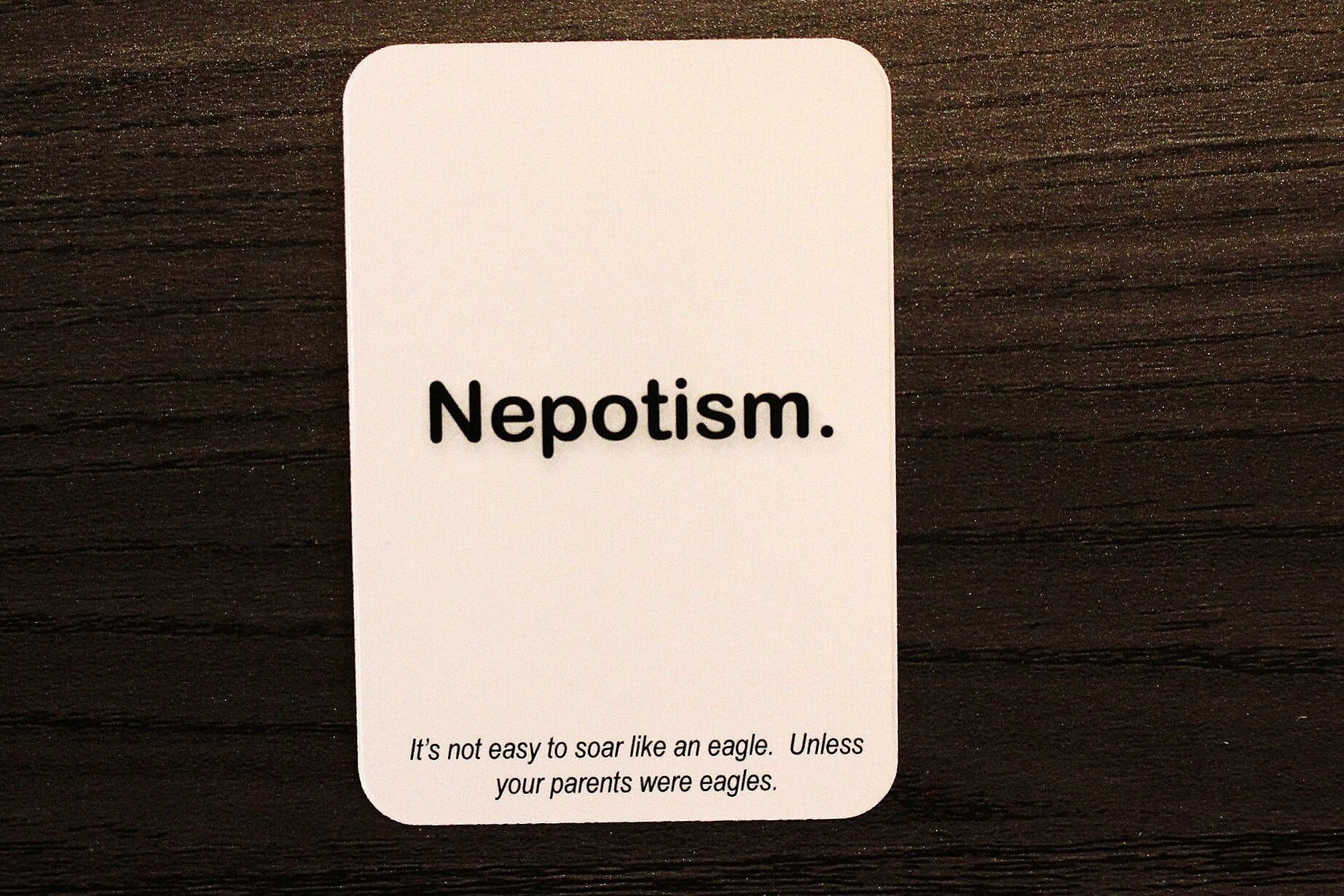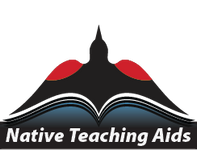2nd Nov 2020
Nepotism
Nepotism

While the rest of the nation (and let’s be honest, the world) is focused on the upcoming U.S. presidential election, many tribal communities are gearing up for a different election. One that often has a much more direct impact on tribal members and reservation residents: the dreaded tribal election. EEEEEEK!
Just kidding.
Tribal elections are not all dreadful. Some are jokes. Some are eye-rolling. Others are just fine, existing with no problems at all (who are we kidding, no one is ever truly happy with their government).
The election process is supposed to be a wave of renewed hope for our communities and excitement about what the future can bring. We vote out people we felt were holding our government back, and vote in new people, who we feel can make it better. We vote for our uncles and cousins, even though they’re not qualified, and have no government experience.
Nepotism, the hiring of friends and family, is a major issue facing tribal governments because not only are employment opportunities scarce on reservations but also, we as Native people come from such close-knit family groups and communities.
Like we’ve talked about in our Indin’ Lovin blog post, Native communities are so interconnected with one another, our extended family is just as important to us as our ‘immediate’ family. Enter a family member running for council, and nepotism will rear its ugly head early on in the election process. how? Through votes.
When you are running for council and you want to make sure you at least have a fighting chance, you first tell your family that you are running and ask for their support by voting for you. Now, if I were to run I would (hopefully) have the support of my Real Bird, Moccasin, and Singer families, guaranteed. Three large families filled with aunties, uncles, grandmas, grandpas, and cousins that would vote for me for one simple reason: we’re related. And this goes for every candidate, it turns into a battle of popularity rather than ideas or qualifications.
You also may have heard that Native societies are reciprocal and believe that everything we do comes back to us somehow, whether it’s gifts, prayers, food, or votes. While our support for one another has changed drastically since colonization, we still take care of each other in accordance with the times. This includes supporting your family that supported you by voting for you.
Once you’re elected there’s immense pressure to use your privilege to help your family. Family is important to us and it’s expected that we do what we can to take care of one another. If you’re in a position of power, then you must ensure that your family is taken care of. And often this can manifest as filing other tribal positions with family
To exacerbate the issue, lack of economic opportunities and employment on reservations can put even more pressure on our councilmen to hire family. As reported by the Missoula Current in 2019, five of Montana’s seven reservations have an unemployment rate above 10 percent. *** In the U.S. as a whole, American Indians/Alaska Native unemployment sat at 6.6 percent almost double the national average of 3.9 percent.***

Due to the lack of employment opportunities, one of the biggest job suppliers on reservations ends up being the tribal government. Tribes often employ hundreds of people from finance to cultural preservation to head start and elders programs, tourism departments, and transportation offices. Imagine you just got voted into office, and on top of the cultural pressure to “share the wealth” you have cousins and auntys who haven’t worked in months who still need to feed their kids and pay the electric bill. How hard would it be to tell them you can’t give them a job?
This practice solves some problems for a few, but for everybody, else nepotism poses a huge issue. We are filling positions with large impacts with people that aren’t qualified to fill them and sometimes don’t have the best interests of the whole tribe in mind. This leads to a hamster wheel of lost funding, minimal opportunities for growth, embezzlement, the list goes on.
This practice not only robs the people of quality leadership, but it also takes potential jobs away from those who have either the degree or training necessary for specific positions. People who have business degrees or training should be running the tribal finance department, right? Someone who was trained to properly manage large budgets for tribal programs, and advance the tribe’s business ventures is much better suited to serve than someone who doesn’t have that training. Likewise, Tribal Health should be in the hands of trained health professionals. Social services should be taken care of by actual social workers. The list goes on and on and it should be obvious right? We need qualified people in qualified positions if we ever want to protect, grow, and empower our communities, but so often hiring qualified people is more difficult, and nuanced than most people think. What then is the solution?
It’s easy to say “hire the right people for the right positions” is the answer, but this also goes for voters. Vote for people who you have taken a critical look at and who are qualified to sit in office, not just people who happen to be your uncle. Encourage better hiring practices, but also exercise compassion for people who struggle. It’s not easy to tell your family you can’t give them a job, especially in our culture, but we can make that easier on our leaders by supporting each other and taking some of the burden off of them.
Further, there are plenty of Natives educated in a variety of fields that can be hired into tribal positions that will expand our businesses, education, community well-being, and culture/language preservation. This helps everybody in the long term, not just one family until the next election.
I don’t have the perfect answer for how to mitigate nepotism or fix our tribal governments. I’ve never been in a position where I had to tell a family member I couldn’t give them a job. I’ve never served on a tribal council. However, I do believe we can do better, and I think a healthy, strong, and functional society starts with strong leaders who will do what is best for all people, and finding that leader starts with us.
If your tribal elections are coming up, please vote for people you believe will lay the groundwork for a strong community. At the end of the day, a good future for our people and children is what’s at stake, and voting for strong leaders is something you can do today to work towards that future.
- Jordynn Paz
“American Indians and Alaska Natives in the U.S. Labor Force: Monthly Labor Review.” U.S. Bureau of Labor Statistics, U.S. Bureau of Labor Statistics, 1 Nov. 2019, www.bls.gov/opub/mlr/2019/article/american-indians-and-alaska-natives-in-the-u-s-labor-force.htm.
Missoula Current. “Montana Unemployment Rate Holds Steady; 1,100 New Jobs Added Statewide.” Missoula Current, 21 Jan. 2019, missoulacurrent.com/business/2019/01/montana-unemployment-december/.
